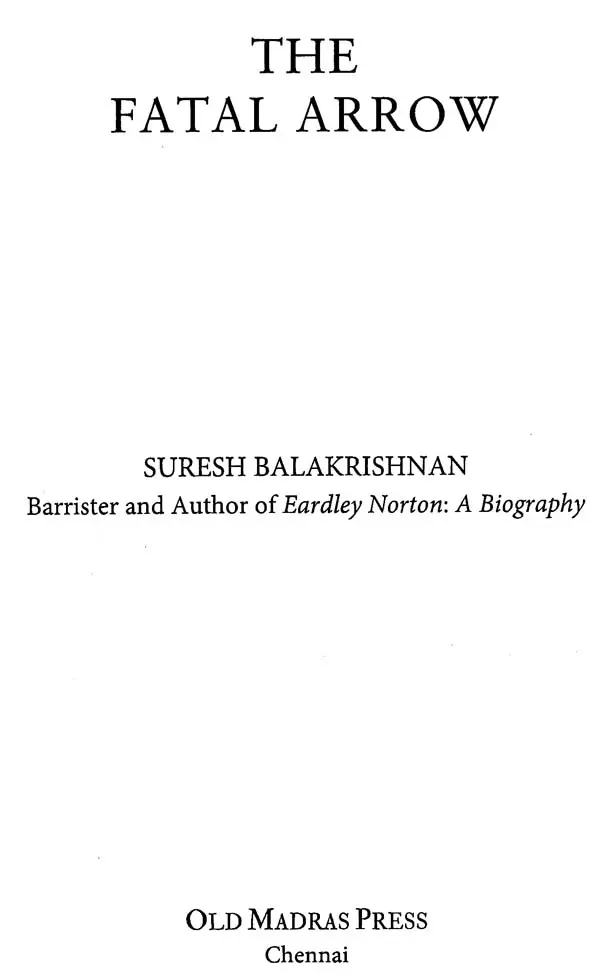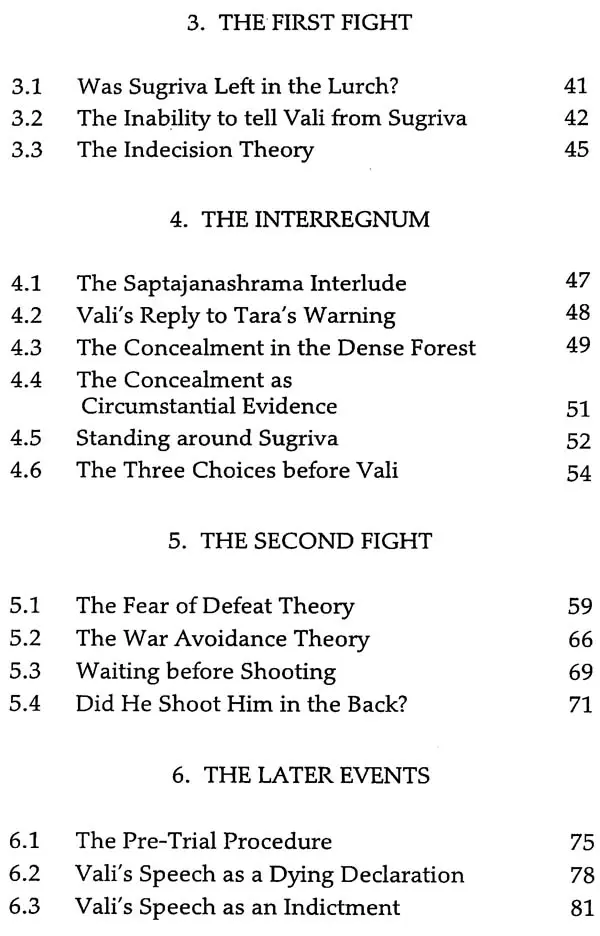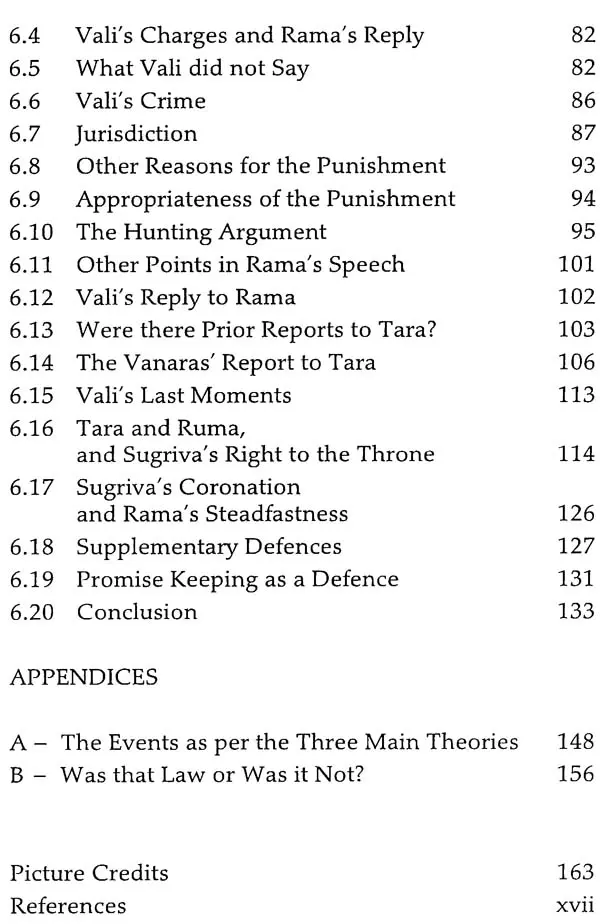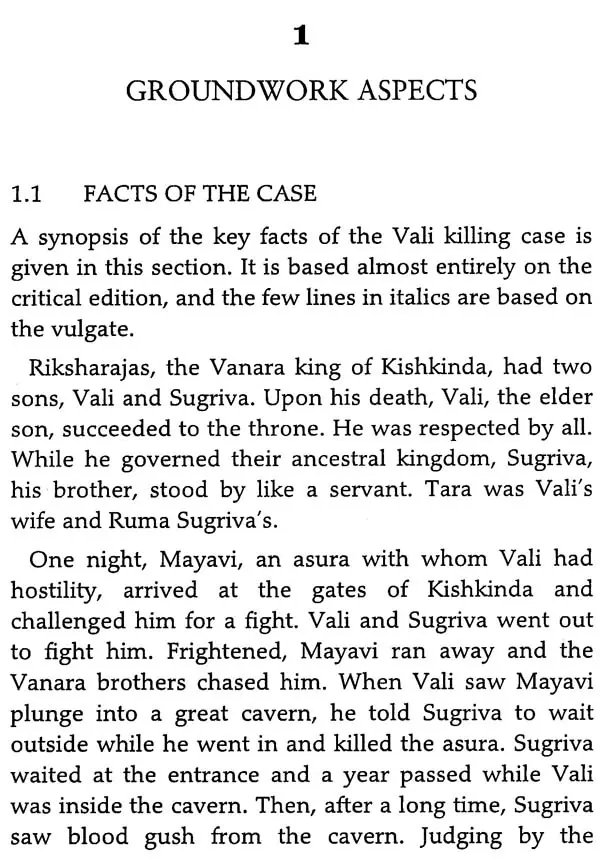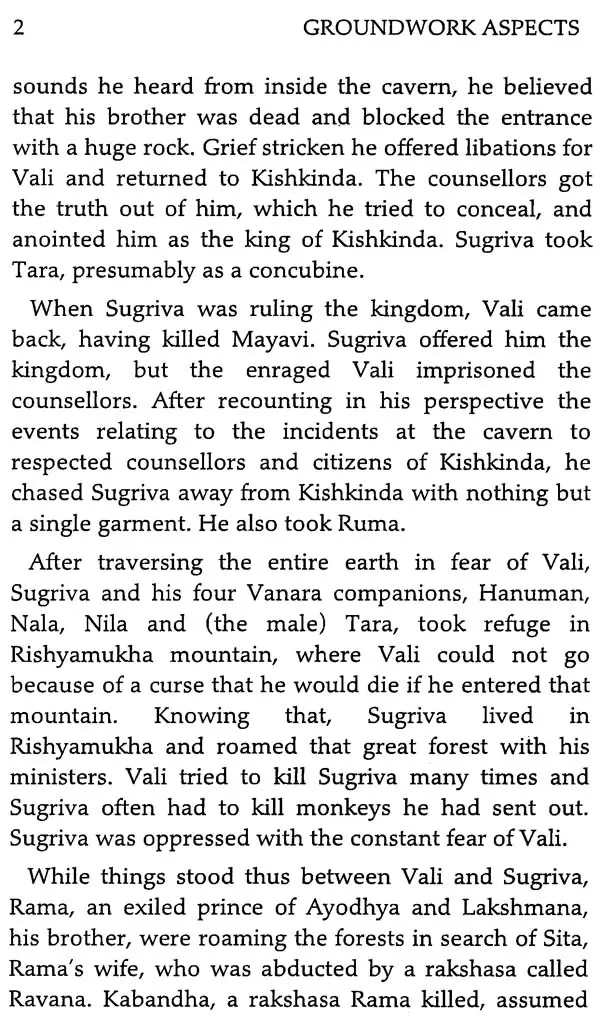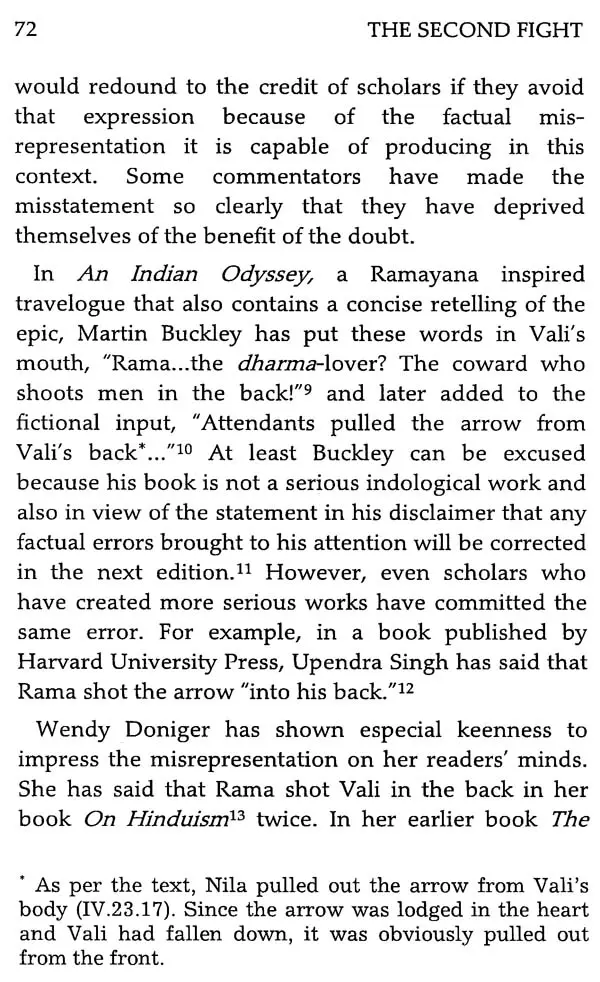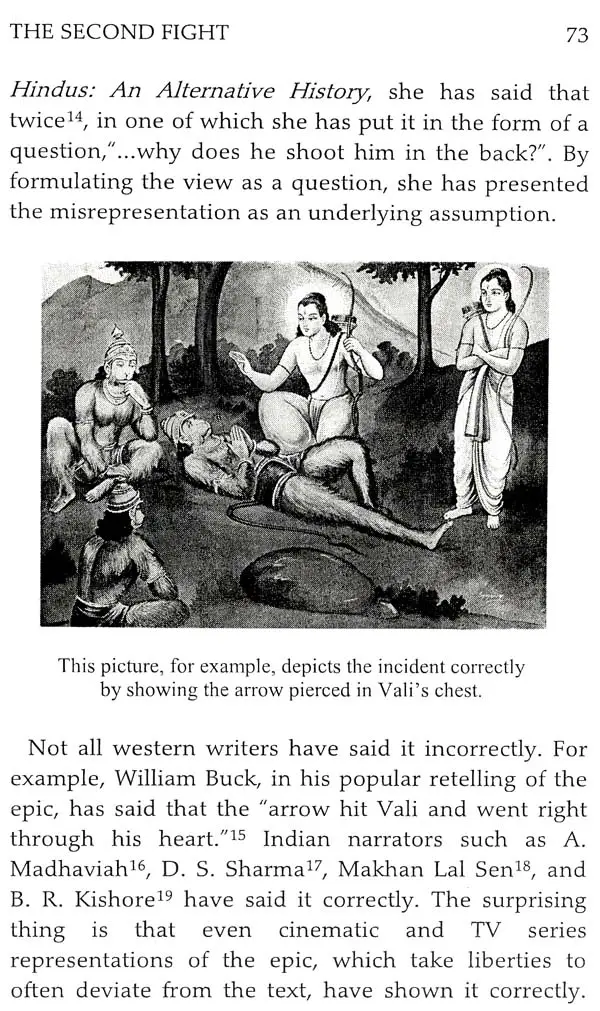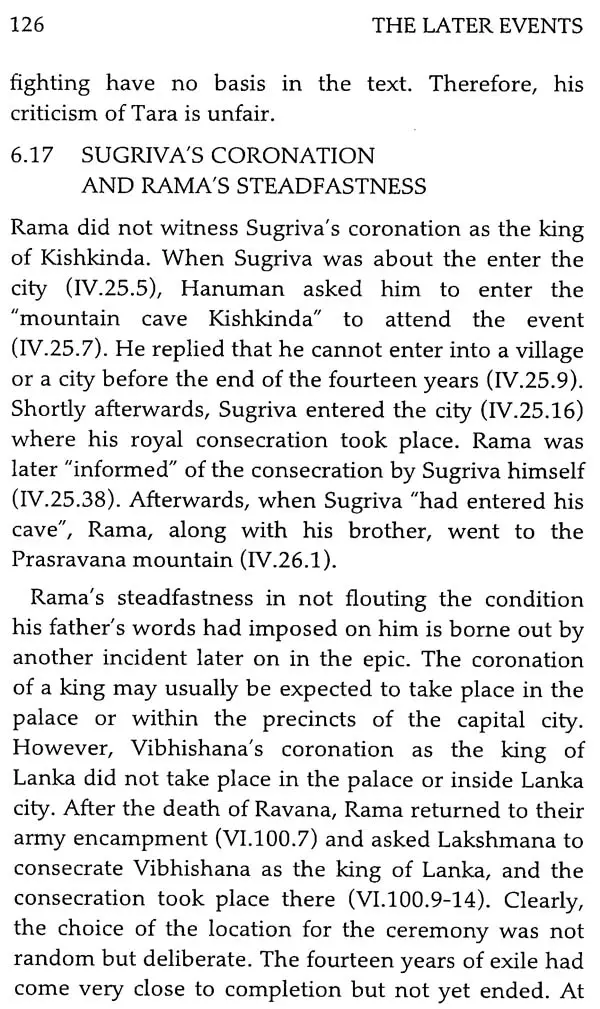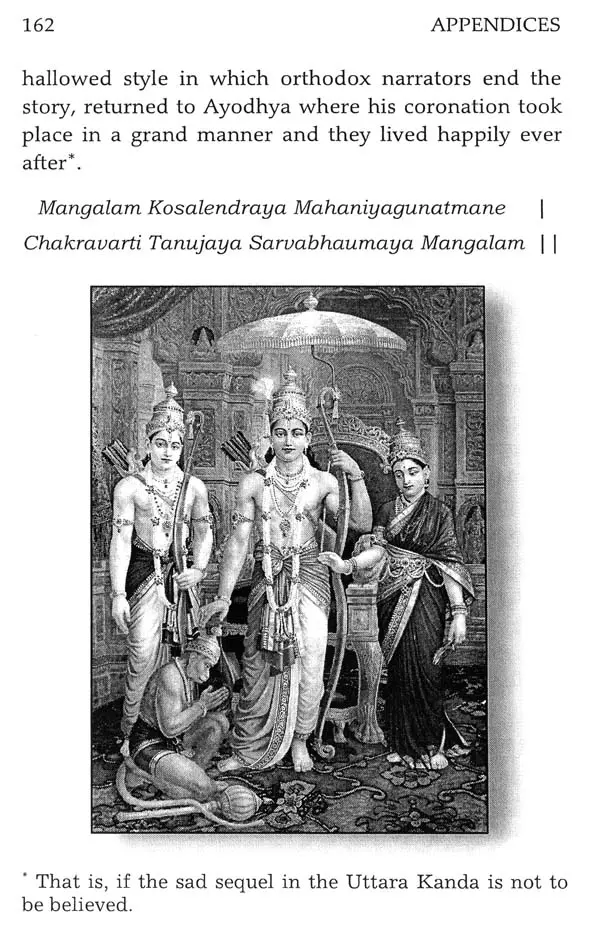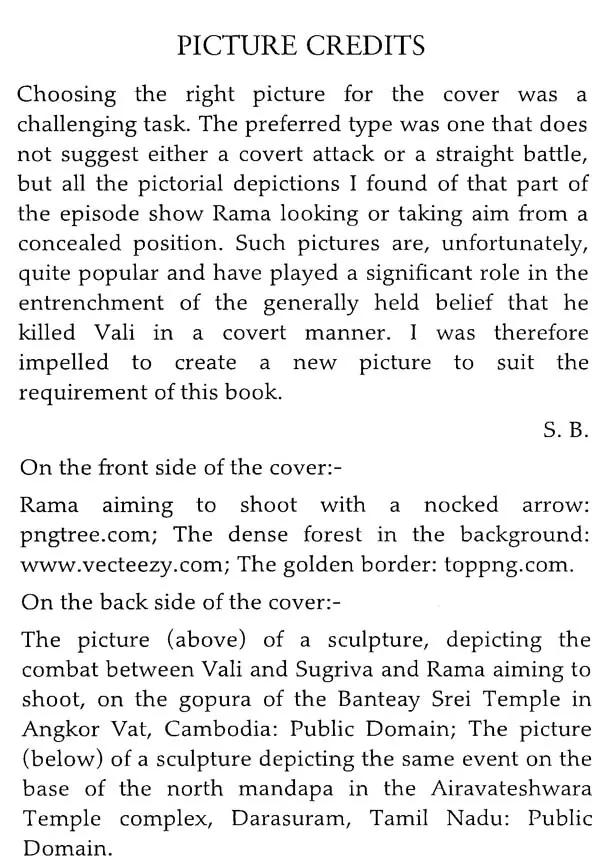
The Fatal Arrow- An Analysis of the Vali Episode in the Ramayana of Valimiki
Book Specification
| Item Code: | UAF464 |
| Author: | Suresh Balakrishnan |
| Publisher: | Old Madras Press, Chennai |
| Language: | English |
| Edition: | 2021 |
| ISBN: | 9788195431410 |
| Pages: | 164 (10 B/W Illustrations) |
| Cover: | PAPERBACK |
| Other Details | 8.50 X 5.50 inch |
| Weight | 250 gm |
Book Description
Was it a fatal arrow for one reason or two, i.e., was the arrow that was fatal to Vali's life also fatal to the popular belief that Rama never swerved from dharma? What makes this topic a never ending controversy? This book is my attempt to find answers to those questions.
This subject is usually handled by academic scholars, literary debaters and exponents of religion; in Tamil Nadu, public debates on the topic under the Ramayanam in Tamil by Kamban are quite popular. Of all the episodes in the Ramayana, this one makes the fittest case for lawyers to analyse.
One of the important episodes in the journey was the killing of Vali. The view that the action had disgraced him is at least as old as the vulgate Mahabharata. In the context of Drona's death, for Yudhishthira's act of deceiving him though without literally uttering a lie, Arjuna* admonished him when he said (or was made to say by a later interpolator), "The ill-fame, in consequence of the slaughter of * Ironically, Arjuna too was accused of taking the victim unawares, in the Mahabharata war when he cut Bhurisravas' arm, an act which, in Bhurisravas' view, "killed" him. (Mahabharata, VII.118.4-15, Critical Edition). If the words extracted above were his and not an interpolation, his moral right to comment on Rama's alleged covert killing of Vali is questionable.
Drona, will be eternal in the three worlds with their mobile and immobile beings, like Rama's in consequence of the slaughter of Vali." Other than that, all the criticisms that I have come across are of a rather recent origin, invariably made in the twentieth and current centuries by western and Indian commentators.
Between the questions of the legal right or wrong and the morality of Rama's action, the commentators whose writings I have read have dealt mainly with the latter and never with the former alone. In this book, I hope to discuss both. An action could be legal and yet regarded as immoral. In the case under question, the main questions before us are whether his conduct was both illegal and immoral or immoral despite being legally correct.
The legality of the action depends on whether he had committed an unjustified killing in the eyes of the law. His critics have convicted him of no less a crime than 'murder'. Murder is one of the prime examples of a crime in which there is an overlap between law and morality and, as a jurist remarked, "is illegal because it is wrong, and wrong because it inflicts palpable injury."2 In this book we will attempt to decide the legal and moral questions separately.
A simplistic way of judging the morality of Rama's action is by adopting Ernest Hemingway's famous dictum as the test: What is moral is what you feel good after and what is immoral is what you feel bad after. Then Rama can be easily absolved of moral blame.
Book's Contents and Sample Pages
